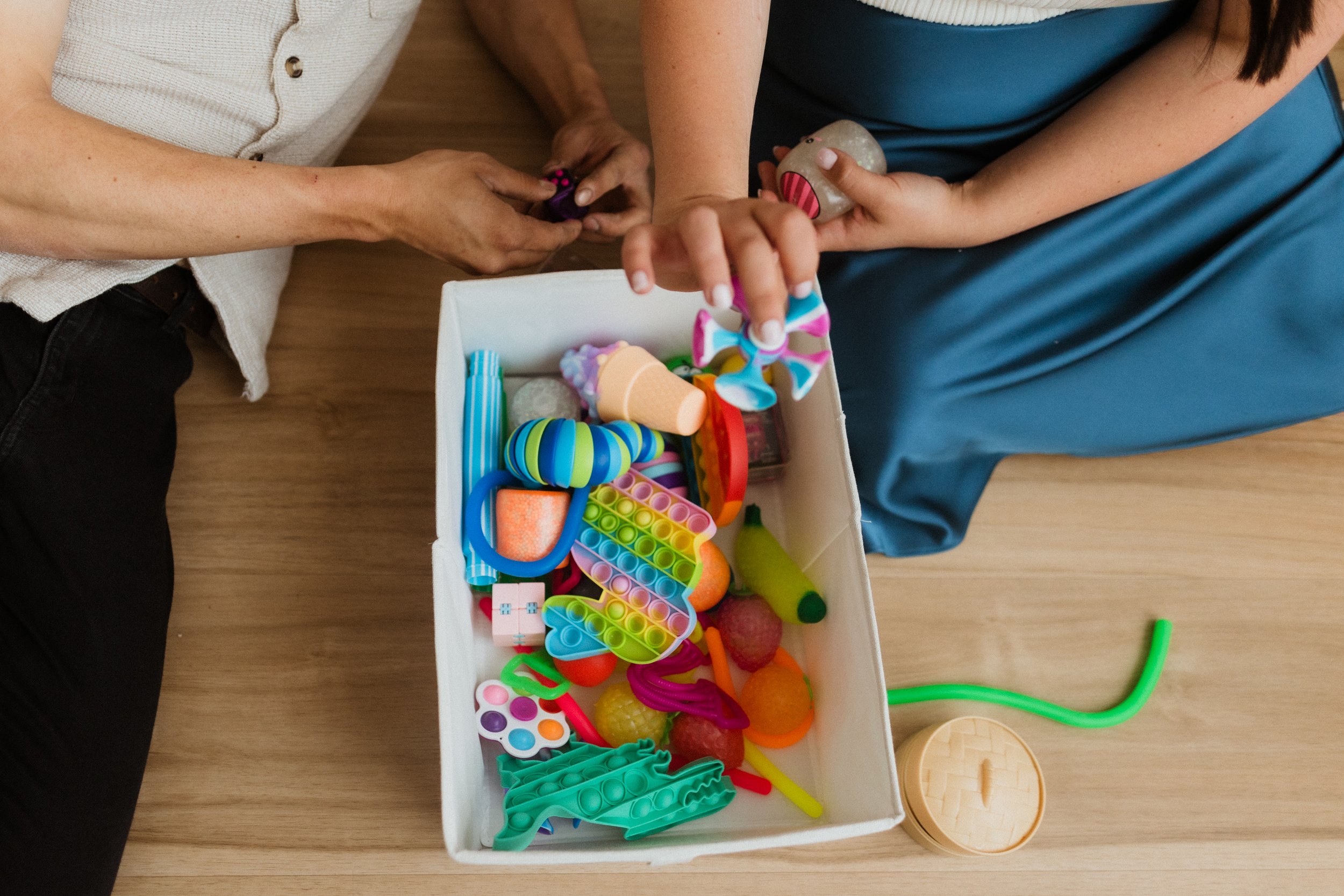How to Support a Child with Sensory Sensitivities or ADHD: Practical Tips for Parents
The ADHD Iceberg: What You See and What You Don’t See
Parenting Children With Sensory Sensitivities and ADHD
Parenting a child with sensory sensitivities or ADHD can be both rewarding and challenging. These children often experience the world differently, which means they may struggle with everyday activities that others find simple. Whether they react strongly to sounds, textures, or social situations, or have difficulty with focus and impulsivity, understanding their needs can make a world of difference.
In this article, we will give some practical strategies to help your child thrive while maintaining a peaceful and connected home environment.
Understanding Sensory Sensitivities and ADHD
Children with sensory sensitivities can be hypersensitive (over-responsive) or hyposensitive (under-responsive) to stimuli such as noise, light, touch, movement, or certain textures. This can lead to meltdowns, avoidance, or seeking intense sensory input.
Children with ADHD (Attention-Deficit/Hyperactivity Disorder) often struggle with focus, impulse control, hyperactivity, and emotional regulation. They may also have sensory processing differences, making it even more important to create a supportive environment.
While every child is unique, the following approaches outlined in the next section can help them feel safe, understood, and empowered.
Examples of sensory and fidget toys we use in our practice.
Some Practical Strategies and Tools for Parents:
1. Create a Sensory-Friendly Environment
Reduce Overstimulation: Loud noises, bright lights, or crowded spaces can be overwhelming. Try noise-cancelling headphones, soft lighting, or quiet spaces at home.
Provide Comfort Items: Weighted blankets, fidget toys, or soft textures can help regulate their nervous system and provide a sense of security.
Offer Movement Breaks: Some children need regular physical movement to regulate their energy levels—try stretching, jumping, or short outdoor walks.
2. Establish Predictable Routines
Children with sensory sensitivities and ADHD thrive on structure.
Use Visual Schedules: Picture charts or written checklists help children know what to expect, reducing anxiety and frustration.
Give Advance Warnings: Transitions can be difficult. Give a 5-10 minute heads-up before changing activities to ease the shift.
Create Calm Morning & Bedtime Routines: Starting and ending the day with consistency can reduce stress and meltdowns.
3. Support Emotional Regulation
Children with ADHD and sensory challenges may struggle to express emotions in a regulated way.
Teach “Big Feelings” Language: Use words like “I see you’re frustrated. Let’s take deep breaths together.”
Provide a Safe “Calm Down” Space: A quiet corner with a soft chair, weighted blanket, or fidget toys can help when they feel overwhelmed.
Practice Breathing & Mindfulness: Teaching deep breathing, muscle relaxation, or prayer can help them regain control when emotions run high.
4. Adapt Learning and Social Interactions
Provide Movement-Friendly Learning: Let them fidget, use a wobble seat, or take movement breaks to help with focus.
Use Positive Reinforcement: Reward small wins instead of focusing on struggles. “You finished your homework! Let’s celebrate with a fun game.”
Help with Social Challenges: Role-play social interactions, teach body language cues, and give scripts for common situations (e.g., “If someone asks to play, you can say ‘Sure!’ or ‘Maybe later.’”)
5. Advocate for Your Child
Communicate with Teachers & Caregivers: Share what works best for your child and ask about accommodations at school.
Trust Your Instincts: If you feel your child’s needs aren’t being met, advocate for assessments, therapy, or school adjustments.
Seek Support: Connecting with other parents, counsellors, or therapists can provide encouragement and new strategies.
You’re Not Alone
Parenting a child with sensory sensitivities or ADHD can feel overwhelming, but with the right strategies, patience, and support, your child can thrive. Every small adjustment you make helps them feel understood, confident, and loved.
If you need personalised support, we offer counselling for parents and families to help you navigate these challenges with confidence. Contact us to book a free discovery call and explore how we can work together.
You’re doing an amazing job!



